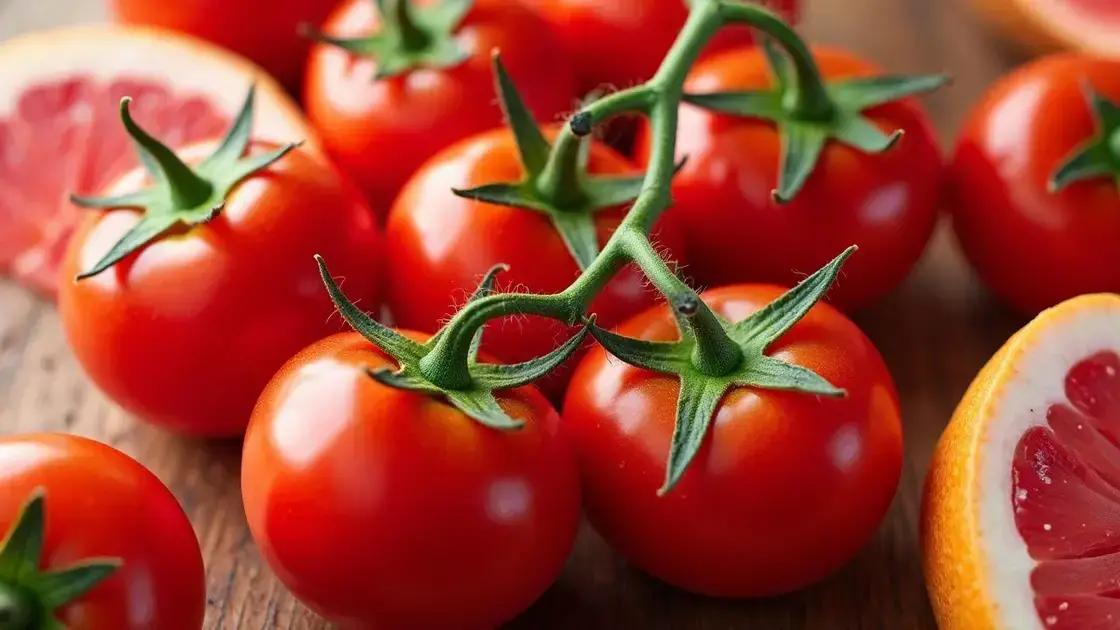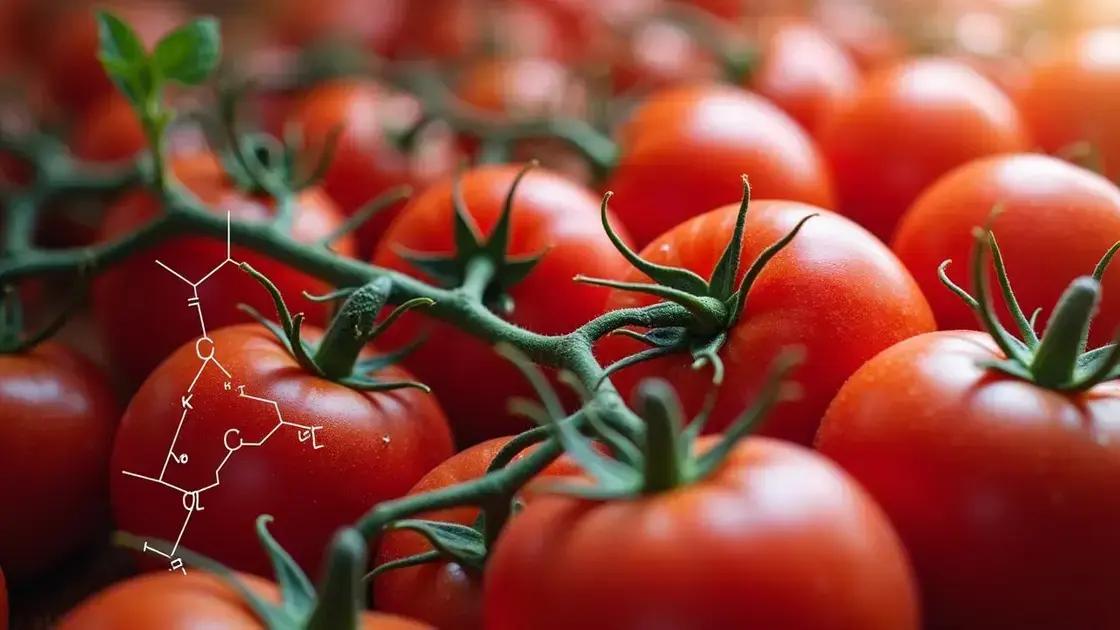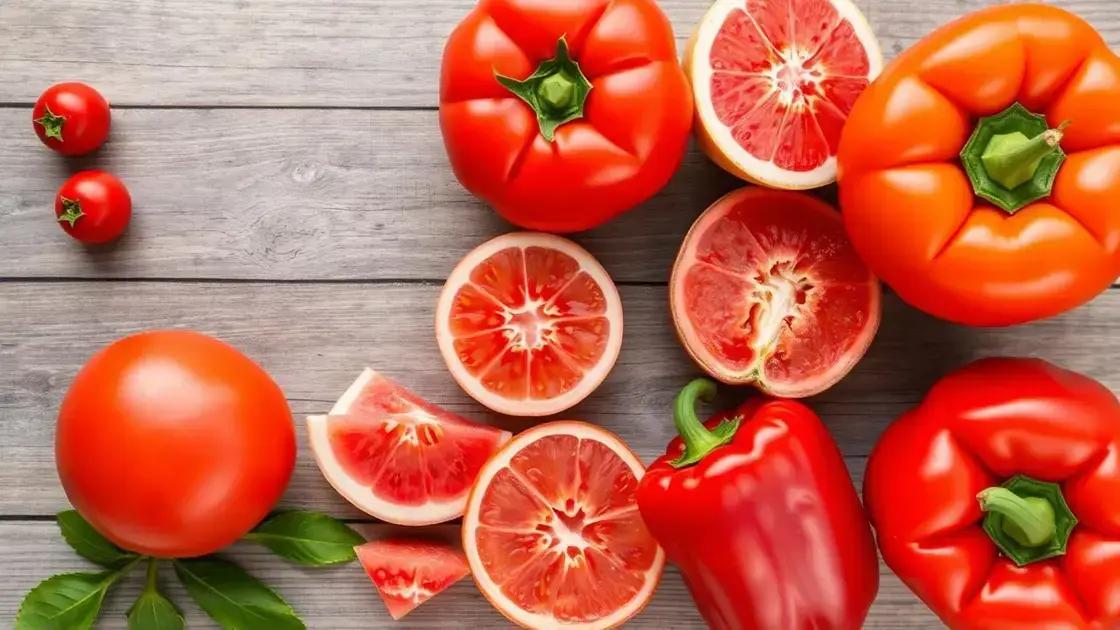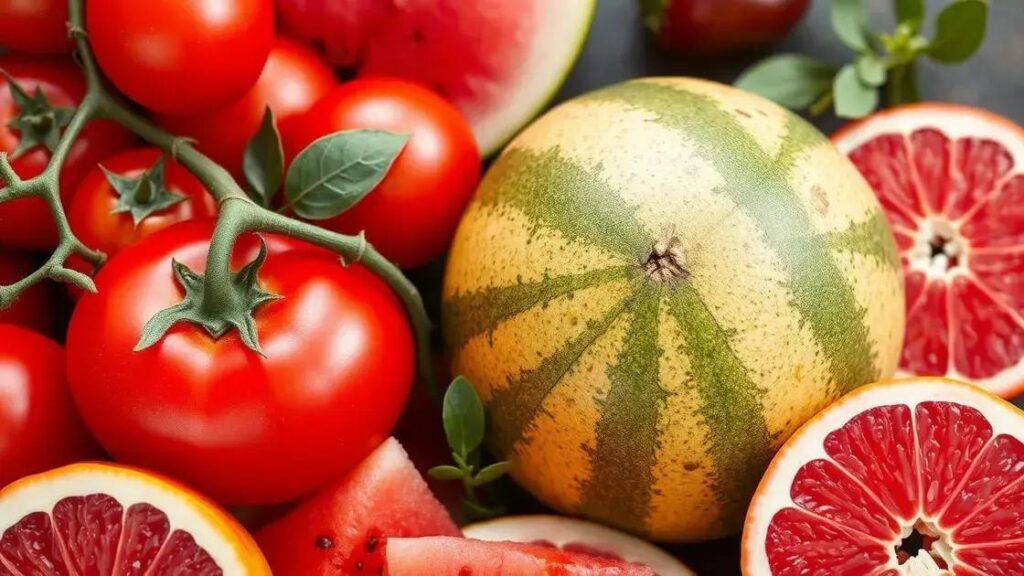Lycopene, a powerful antioxidant found primarily in tomatoes, plays a crucial role in prostate cancer prevention by combating oxidative stress and inflammation. Foods rich in lycopene, such as cooked tomatoes, watermelon, and pink grapefruit, can be easily integrated into a balanced diet to enhance overall health and reduce cancer risk.
Lycopene, a powerful antioxidant found in tomatoes, plays a vital role in prostate cancer prevention. This nutrient has demonstrated potential in reducing cancer risks while promoting overall health. In this article, we’ll delve into what lycopene is, explore the science behind its protective effects, identify dietary sources, and offer tips on how to easily incorporate this beneficial compound into your daily meals. Join us as we uncover the importance of lycopene in keeping prostate cancer at bay.
Understanding Lycopene: What Is It?

Lycopene is a naturally occurring carotenoid pigment found in various fruits and vegetables, particularly in tomatoes. It is responsible for the bright red color seen in these foods. This powerful antioxidant is not only essential for giving color but also plays a significant role in human health.
The human body cannot produce lycopene, so it must be obtained through diet. Studies suggest that lycopene may have protective properties against several chronic diseases, including prostate cancer. Researchers posit that the antioxidant effect of lycopene may help reduce oxidative stress in cells, which is crucial in preventing cancers.
The Discovery of Lycopene
Lycopene was first identified by German chemist Richard Willstätter in 1910. Over the decades, extensive research has been conducted to analyze its health benefits. Most notably, lycopene has gained attention for its potential role in cancer prevention, specifically prostate cancer.
How Lycopene Works in the Body
When consumed, lycopene is absorbed in the digestive tract and transported to various tissues in the body. Its antioxidant properties help neutralize free radicals, which are unstable molecules that can cause damage to cells, leading to cancer development. Studies have shown that individuals with higher lycopene levels in their blood have a lower risk of developing prostate cancer.
Furthermore, lycopene can inhibit the proliferation of cancer cells and promote apoptosis, which is the programmed cell death necessary to eliminate damaged cells. This dual action makes lycopene an exciting subject for ongoing cancer research.
Important Notes About Lycopene
While lycopene is beneficial, it is vital to remember that it should be part of a balanced diet. Relying solely on lycopene for cancer prevention is not recommended. Instead, it is crucial to incorporate a variety of antioxidants and nutrients to support overall health.
Science Behind Lycopene and Cancer Prevention

The science behind lycopene and cancer prevention is a fascinating area of research. Numerous studies have explored how this powerful antioxidant may help defend against cancer, especially prostate cancer. Lycopene has the potential to inhibit cancer cell growth and induce cell death through various mechanisms.
Oxidative Stress and Cancer
One of the primary ways lycopene works is by combating oxidative stress. This condition occurs when there is an imbalance between free radicals and antioxidants in the body. Free radicals can damage cells and DNA, leading to cancer. Lycopene’s antioxidant properties help neutralize these harmful molecules.
Mechanisms of Action
Research shows that lycopene may influence the body’s signaling pathways. It can modulate the expression of genes involved in cell growth and death, which is crucial for preventing cancer. Lycopene also works by:
- Reducing Inflammation: Chronic inflammation is linked to cancer development. Lycopene has anti-inflammatory properties that may help lower this risk.
- Regulating Hormones: Lycopene may influence hormones, particularly androgens, which can affect prostate cancer progression.
- Enhancing Immune Function: A healthy immune system is vital for identifying and destroying cancer cells. Lycopene may boost immune responses, providing additional protection.
Supporting Clinical Research
Many epidemiological studies have shown that higher dietary intake of lycopene is associated with a reduced risk of prostate cancer. For example, men who consume more tomato products, which are rich in lycopene, tend to have lower prostate cancer rates. Clinical trials are ongoing to better understand the precise role of lycopene in cancer prevention.
Moreover, lycopene is more bioavailable in cooked tomato products, signaling that cooking can enhance its health benefits. This is an important consideration for those looking to increase their lycopene intake through diet.
Dietary Sources of Lycopene

Incorporating lycopene into your diet is important for harnessing its health benefits, particularly for prostate cancer prevention. Fortunately, many tasty foods are rich in lycopene, making it easy to include in your daily meals.
Primary Dietary Sources of Lycopene
The following foods are some of the most abundant sources of lycopene:
- Tomatoes: Fresh tomatoes are one of the richest sources. Cooking tomatoes increases lycopene levels, so tomato sauces, soups, and pastes are excellent choices.
- Watermelon: This summer favorite is refreshing and contains significant amounts of lycopene. It’s a great option for hydration and health.
- Pink Grapefruit: Both pink and red varieties of grapefruit are excellent sources of lycopene and can be enjoyed fresh or in juices.
- Red Bell Peppers: Not only do these peppers add color to dishes, but they also provide a good amount of lycopene.
- Guava: This tropical fruit is known for its high nutrient content, including lycopene, making it a delicious addition to smoothies or salads.
Processed Tomato Products
Processed tomato products often have higher levels of lycopene due to the cooking process. These include:
- Tomato Sauce: Using it in pasta or pizza is a simple way to boost lycopene intake.
- Tomato Paste: As a concentrated form, tomato paste is an easy way to add flavor and nutrients to dishes.
- Canned Tomatoes: Convenient and versatile, canned tomatoes retain much of their lycopene content.
Tips for Maximizing Lycopene Absorption
To maximize the absorption of lycopene from your foods, consider the following tips:
- Cook Your Vegetables: Cooking tomatoes and other lycopene-rich foods increases the bioavailability of this powerful antioxidant.
- Pair with Healthy Fats: Eating lycopene-rich foods with healthy fats, like olive oil or avocado, can enhance absorption.
- Incorporate a Variety: Include a mix of lycopene sources in your diet to ensure you get the benefits from multiple foods.
Integrating Lycopene into Your Diet for Health Benefits

Integrating lycopene into your diet is a straightforward way to enjoy its numerous health benefits, particularly for prostate cancer prevention. Here are some effective strategies to get more lycopene into your meals.
Incorporate Cooked Tomato Products
Cooking tomatoes helps release more lycopene, making tomato-based dishes an excellent way to start. Consider using:
- Tomato Sauce: Use it in pasta, casseroles, or as a pizza topping for a tasty and healthy option.
- Tomato Soup: Enjoy a warm bowl of tomato soup, which is comforting and rich in lycopene.
- Stewed Tomatoes: These can be a great side dish or added to other recipes for extra nutrition.
Experiment with Salads and Smoothies
Add fresh tomatoes, red bell peppers, or watermelon slices to salads for a refreshing crunch and color. You can also blend these ingredients into smoothies for a nutrient-packed drink. Adding pink grapefruit to your morning smoothie can boost your lycopene intake while keeping it delicious.
Use Lycopene-Rich Condiments
Opt for condiments made from tomatoes, such as:
- Ketchup: Choose options with natural ingredients and no added sugars.
- Salsa: A fresh salsa can enhance your meals while increasing your lycopene consumption.
Cooking Tips for Maximizing Lycopene
- Pair with Healthy Fats: Cooking with olive oil or sprinkling avocado on dishes can enhance lycopene absorption.
- Try Roasting: Roasting tomatoes deepens their flavor and boosts nutrient levels, making them a delicious addition to various dishes.
Try New Recipes
Look for recipes that highlight lycopene-rich foods. For instance:
- Create a tomato and basil salad with fresh mozzarella for a simple yet flavorful dish.
- Make a watermelon and feta salad for a refreshing summer treat.
- Prepare a red bell pepper soup to enjoy its health benefits in a warm dish.
Embracing Lycopene for Better Health
Lycopene represents a promising ally in the fight against prostate cancer and other chronic diseases. By understanding its sources and integrating it into your daily diet, you can harness its potential benefits. From consuming cooked tomatoes to experimenting with different recipes, there are numerous delicious ways to add lycopene-rich foods to your meals.
As research continues to unveil the full extent of lycopene’s health benefits, taking steps to include this powerful nutrient in your diet becomes even more important. Remember, a balanced diet filled with a variety of nutrients is crucial for overall health, and lycopene can play a vital role.
Make a conscious effort to select lycopene-rich foods, and enjoy the tasty, health-enhancing advantages they offer. Together, let’s build a foundation for better health through informed dietary choices.
FAQ – Frequently Asked Questions about Lycopene and Prostate Cancer Prevention
What is lycopene and why is it important?
Lycopene is a powerful antioxidant found in tomatoes and other fruits, known for its potential role in reducing the risk of prostate cancer and other diseases.
What foods are high in lycopene?
Foods rich in lycopene include cooked tomatoes, watermelon, pink grapefruit, red bell peppers, and guava.
How can I increase my lycopene intake?
You can increase your lycopene intake by consuming more cooked tomato products, adding fresh fruits rich in lycopene to your meals, and using tomato-based sauces and condiments.
Does cooking tomatoes affect lycopene content?
Yes, cooking tomatoes actually increases the bioavailability of lycopene, making it easier for your body to absorb.
Are there any health benefits of lycopene besides cancer prevention?
Yes, lycopene may also help reduce inflammation, support heart health, and improve overall immune function.
Is there a recommended amount of lycopene I should consume daily?
While no specific daily intake is established, aiming for a varied diet that includes lycopene-rich foods several times a week is beneficial.












